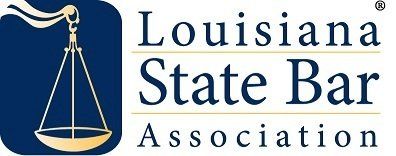Business Entities in Virginia
How to choose the right one for you and what to do before you open your business
Part 1 of 2
4 Primary Forms of Business Entities in Virginia:
Sole Proprietorship;
Partnership;
Limited Liability Company; and,
Corporation
Things to consider when choosing:
Structure of ownership (number of owners, classes, possible expansion);
Long term plans (sale, expansion, investments, inheritance);
Tax advantages – S corp. election (wages vs. dividends); and,
Protection of personal assets – limited liability
Two Bad Choices:
Sole Proprietorship and Partnership
Both expose the owners to unlimited personal liability and lack flexibility – limits on investment/expansion possibilities, exit strategies. They also have a disadvantage for tax planning (no S corp). Simply put, these are a very dangerous way to operate a business.
Limited Liability Company
An LLC is an unincorporated association of one or more members organized and operated under the rules of the Virginia Limited Liability Act. An LLC can be formed for any lawful type of business and offers limited liability protection for all of its owners (called “Members”).
Limited Liability Company Organization – three key parts:
1. File Articles of Organization with the State Corporation Commission
2. Execute an Operating Agreement
3. Pick your tax status
Articles of Organization for LLC’s
Must contain certain information required by the LLC Act – principal office address, registered agent and office, name (see §13.1-1011 of the Virginia Code).
In addition, the name must contain the words “limited liability company,” “limited company,” or the abbreviations “LLC” or “LC”. The name of the LLC must be different from the name of any other Virginia LLC; and, approval of your name by the SCC is NOT trademark clearance!
Other aspects of a limited liability company:
Can be owned by one or more individuals or entities. No limit on members.
May be managed by the members or by managers (who may or may not be members themselves)
Members control the LLC in proportion to their ownership stake unless otherwise agreed to in the Operating Agreement and an LLC can be in existence forever.
In addition, the owner has no personal liability for the debts and obligations of the LLC (similar to corporation). LLC’s with more than one member can choose to be taxed as a partnership or an S corp. With only one member, can choose to be taxed as a sole proprietor (disregarded as a separate entity) or as an S corp. Yes, LLC’s can be taxed as an S Corp!
Advantages of an LLC:
Limited liability for the owners;
Complete flexibility in setting up the Operating Agreement;
Less formalities than a corporation; and,
Tax benefits.
Disadvantages of an LLC:
There really are no major disadvantages. The initial cost to set up ($100 filing fee) and maintain ($50 per year)
Corporations
Corporations are a separate legal entity, created pursuant to the laws of Virginia, which is treated for all purposes as a separate person. A corporation may engage in any lawful business.
Corporate Organization
Corporations are formed by filing articles of incorporation with the State Corporation Commission. §13.1-619 of the Virginia Code specifies the information that must be included.
Corporation should have by-laws custom designed for the specific business and situation. By-laws contain the rules the corporation must follow. Corporations must have at least one Director and one officer (can be the same person) unless otherwise agreed to.
In addition, there are certain record-keeping and meeting requirements that must be followed.
Corporate name must include the word “corporation,” “incorporated,” “company,” or “limited” (or an abbreviation of these – corp., co., inc.).
For tax purposes, there are two types of corporations – C Corp. and S Corp.
C Corp. – is any corporation that is not an S corp. Any person or entity may own shares in a C Corp. Corp. is taxed on its income and shareholders are taxed on their dividends. Often called “double taxation” because the same money can be taxed twice (once at the corp. level and then again at the shareholder level)
S Corp. – is a corporation that has elected to be treated for federal tax purposes under Subchapter S of the Internal Revenue Code which allows pass-through treatment of income for tax purposes (no double taxation). S Corp’s can have a max of 100 shareholders, all of whom must be individuals.
Other Aspects of Corporations
Shareholders have ultimate control of a corporation. Board of Directors and officers generally have day to day business control. Corporations may be in existence forever unless otherwise agreed to or unless it is dissolved by law or shareholder agreement. Shareholders/owners are NOT liable for the debts or obligations of the corporation. However, shareholders must beware of treating the corp. as an alter ego that could lose the limitation of liability.
Shares of a corporation are freely transferable unless limited by the by-laws, etc.
C Corp’s have the ability to issue different classes of stock with different rights. S Corp’s may have only one class of stock with identical rights.
Advantages of a Corporation
Major advantage is limited liability protection for owners while still permitting the owners participation in the business. Also, corporations are well-accepted forms of business with established laws and precedents governing their operation; may have better perception of the corporation by customers, vendors, others.
Disadvantages of a Corporation
Not many but there are formalities required to keep the corporate form (annual report required to be filed) and retain the limited liability protection and upfront costs to set up the corporation (filing fee due to the State Corporation Commission is $75.00, annual renewal fee is $100 per year).
Other Forms of Business Entities
Non-stock corporations – primarily used for charities, trade groups, clubs, other non-profits
Limited partnerships – primarily used for real estate investing
Professional corporations and professional LLC’s – used, and required to be used, by certain professions – lawyers, doctors, etc. – that require special licensing and regulation by Virginia.
Now you have formed your business — you have analyzed what entity is best for you, you have assessed the legal liability, you have filed the appropriate state documents — now what? In Part 2 of 2, I’ll go over the various licensing documents that need to filed and in what municipality and/or county.
As you can see, there is plenty to consider. Choosing the wrong entity can lead to serious tax and legal liability. Please note that the information above is not meant to be legal advice. As such, I highly recommend you consult a legal professional for advice on what entry is best for you.
The post Starting your own business? — Great! Before you do, though, take a look at this. (Part 1 of 2) appeared first on AEGómez, PC.




